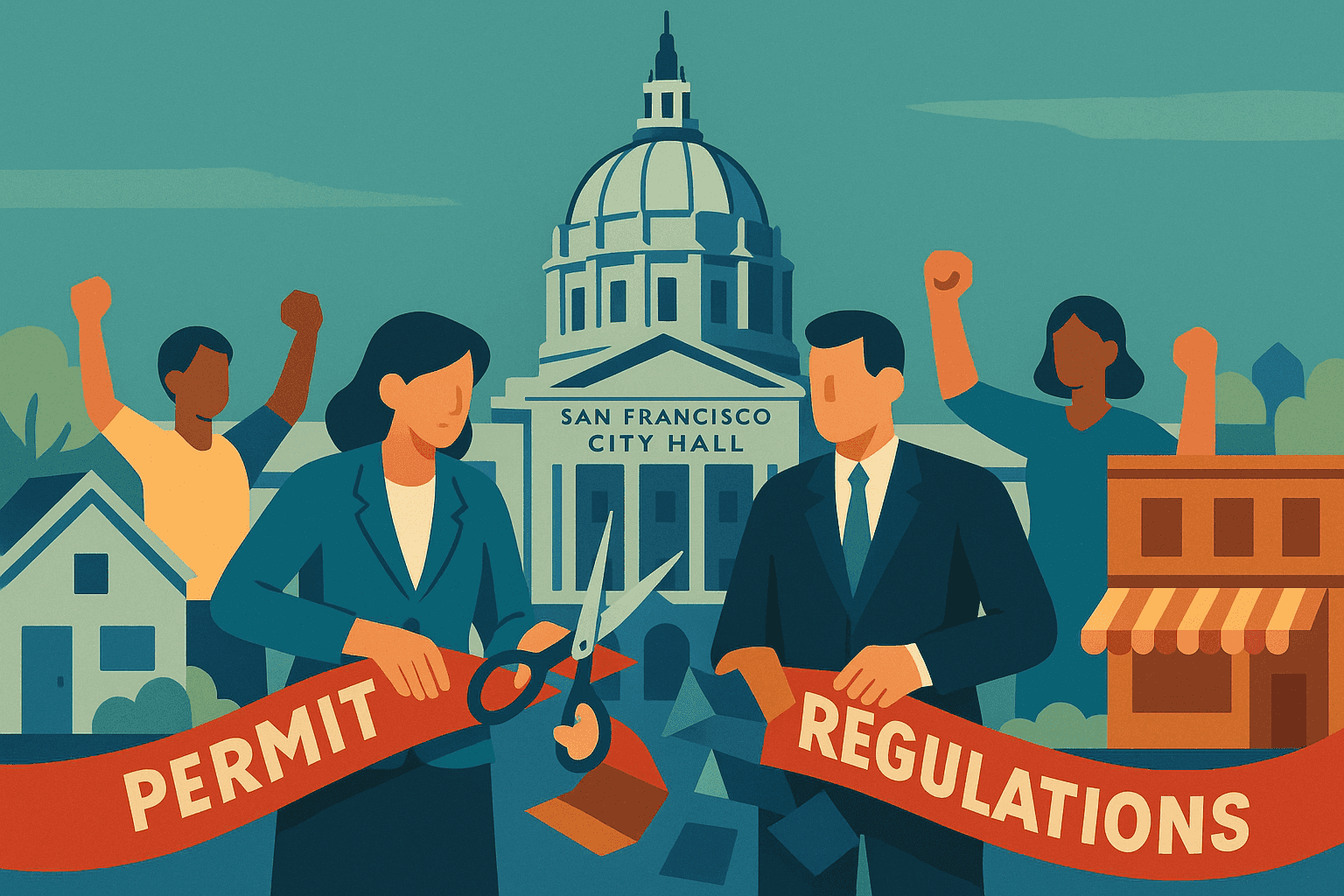Lurie Targets "Dumb Rules" with New Permit Reforms
September 04, 2025
Mayor's latest PermitSF package eliminates driveway parking fines, streamlines ADUs, and cuts fees for major developments.

The Facts
On September 2, 2025, Mayor Daniel Lurie unveiled six new ordinances aimed at eliminating what his administration calls "dumb rules" that create unnecessary hardships for residents and businesses. The legislative package represents the latest wave of the PermitSF initiative launched earlier this year.
The six specific reforms include:
- Driveway parking ban elimination - Ends fines of up to $1,500 for parking in your own driveway, closing 123 open enforcement cases
- ADU streamlining - Aligns local accessory dwelling unit rules with state law to simplify construction
- Development fee reductions - Cuts permitting fees for projects valued over $100 million to jumpstart major developments
- Historic building flexibility - Eases restrictions on historic properties to help owners find tenants and continue investing
- Commemorative plaque simplification - Makes it easier to install neighborhood memorial plaques on sidewalks
- Excavation permit reform - Eliminates the $700 parking plan requirement that added unnecessary costs
Additional streamlining includes over-the-counter permits for restaurant renovations and expedited processes for rooftop solar panel installations, according to Laura Waxmann at The Chronicle.
The Context
These reforms build on Lurie's broader effort to modernize San Francisco's notoriously complex permitting system. Previous PermitSF initiatives have already eliminated arbitrary size limits for rooftop structures and cut superfluous requirements that added costs without improving safety.
The driveway parking reform addresses overly broad enforcement that penalized homeowners even when sidewalk access wasn't blocked. The change still protects pedestrians by maintaining rules against blocking sidewalks for wheelchair users and families with strollers. Other changes address historic building restrictions that have left properties vacant due to overly stringent preservation rules, and eliminate bureaucratic requirements that serve no public purpose.
The GrowSF Take
These reforms demonstrate the value of targeted rule-making over blanket prohibitions. While some regulations serve legitimate purposes—like ensuring sidewalk accessibility—enforcement should focus on actual problems rather than technical violations that don't harm anyone.
The broader package shows how government can eliminate barriers to housing construction and business operations without compromising public safety. Streamlining ADU rules aligns local law with state requirements, while reducing fees for major developments could jumpstart construction projects that create jobs and housing. This methodical approach to cutting red tape represents exactly the kind of pragmatic governance that San Francisco needs.
Generate a Personalized Email to the Board of Supervisors
To:
Sign up for the GrowSF Report
Our weekly roundup of news & Insights